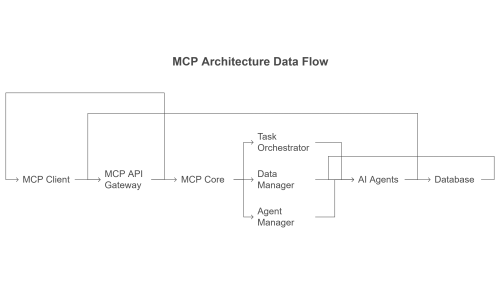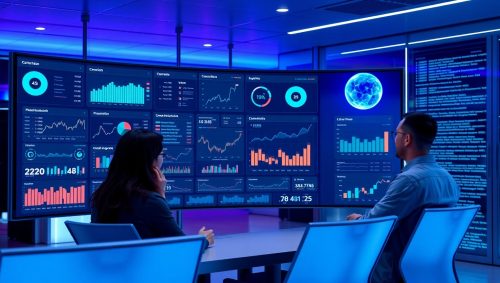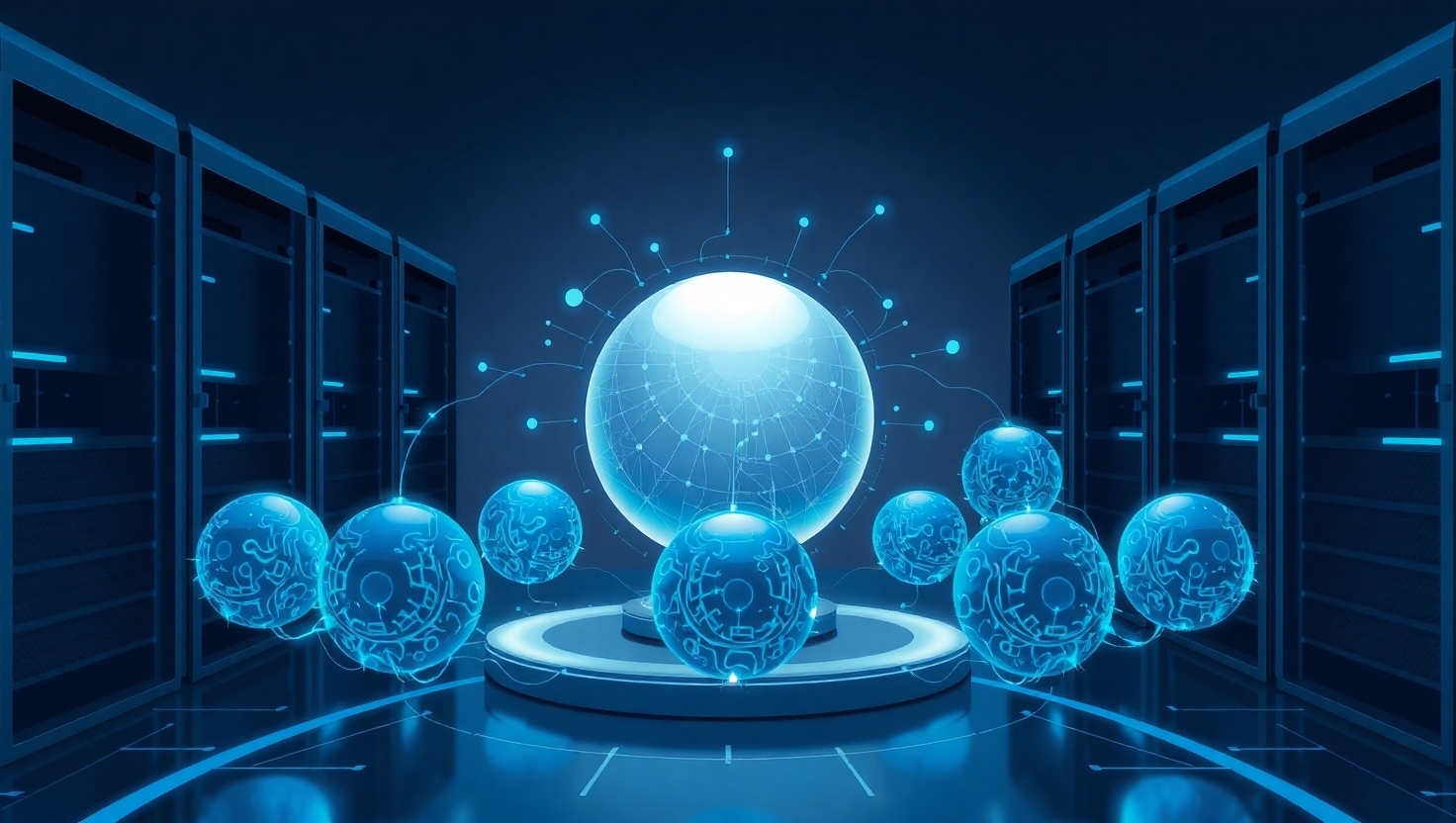In the rapidly evolving landscape of artificial intelligence (AI), the emergence of Model Context Protocol (MCP) servers has marked a significant milestone. Introduced in late 2024, MCP serves as an open standard that enables AI models to seamlessly interact with external tools and data sources. This innovation has paved the way for more autonomous and versatile AI agents, capable of performing complex tasks across various domains.
Understanding MCP Servers
MCP servers act as intermediaries between AI models and external systems, providing a standardized interface for interactions. They allow AI agents to access real-time data, execute actions, and integrate with diverse applications without the need for custom integrations. This standardization reduces development complexity and enhances the scalability of AI solutions.

How MCP Servers Work
MCP servers function as intermediaries between AI models and external systems, facilitating seamless interactions. They operate on a client-server architecture:
- MCP Client: Embedded within the AI model, it sends requests to MCP servers and processes their responses.
- MCP Server: Connects to external tools, databases, or APIs, executes the requested actions, and returns the results to the client.
This setup allows AI agents to dynamically discover and utilize tools, enhancing their adaptability and functionality.
Key Components of MCP Servers
- Resources: Read-only data sources that provide context, such as databases or file systems.
- Tools: Executable actions like sending messages or querying databases that AI agents can invoke.
- Prompts: Predefined templates that guide AI interactions, streamlining task execution.
These components enable AI agents to perform complex tasks by interacting with various external systems through standardized protocols.
MCP Servers in Industry-Specific Applications

Healthcare Sector
In healthcare, MCP servers facilitate AI agents in accessing patient records, scheduling appointments, and providing personalized health recommendations. By integrating with electronic health record (EHR) systems, AI agents can deliver timely and accurate information to both patients and healthcare providers, improving patient outcomes and operational efficiency.
Financial Services
Financial institutions utilize MCP servers to enable AI agents to interact with real-time financial data, process transactions, and offer investment advice. By connecting to various financial databases and APIs, AI agents can analyze market trends and assist clients in making informed financial decisions, enhancing customer satisfaction and engagement.
Retail and E-commerce
In the retail industry, MCP servers empower AI agents to manage inventory, process orders, and personalize shopping experiences. By integrating with inventory management systems and customer databases, AI agents can optimize stock levels, recommend products, and streamline the purchasing process, leading to increased sales and customer loyalty.
Challenges and Considerations
Security and Privacy
Integrating AI agents with external systems via MCP servers raises concerns about data security and privacy. Ensuring that sensitive information is protected during data exchanges is paramount. Implementing robust encryption protocols and access controls is essential to safeguard against unauthorized access and data breaches.
Standardization and Adoption
While MCP provides a standardized framework for AI-tool interactions, widespread adoption requires collaboration among industry stakeholders. Developers and organizations must work together to build and maintain MCP servers, ensuring compatibility and reliability across various platforms and applications.
Future Outlook
The evolution of MCP servers is poised to drive significant advancements in AI capabilities across multiple sectors. As more industries adopt MCP standards, AI agents will become increasingly adept at performing complex, cross-platform tasks, leading to more intelligent and autonomous systems. Continued innovation and collaboration in developing MCP servers will unlock new possibilities for AI applications, transforming how businesses operate and how individuals interact with technology.
Top Use Cases of MCP Servers in 2025

1. Enhancing Developer Workflows
Developers can leverage MCP servers to streamline their workflows by integrating AI agents directly into their development environments. For instance, integrating AI agents with code repositories enables tasks such as code generation, debugging, and repository management. This integration leads to increased productivity and a more seamless development process.
2. Automating Business Processes
MCP servers facilitate the automation of complex business processes by enabling AI agents to interact with various enterprise applications. For example, AI agents can manage customer relationships by accessing CRM systems, processing data, and executing tasks such as sending personalized communications. This automation enhances efficiency and reduces the potential for human error.
3. Enabling Personal AI Assistants
Personal AI assistants powered by MCP servers can access and process information from multiple sources, including emails, calendars, and documents. This capability allows them to perform tasks such as scheduling appointments, setting reminders, and providing personalized recommendations, thereby improving personal productivity and user experience.
4. Facilitating Data-Driven Decision Making
AI agents equipped with MCP servers can analyze data from various sources to provide actionable insights. For instance, in the field of business intelligence, AI agents can process data from sales, marketing, and customer service to identify trends and support strategic decision-making. This data-driven approach leads to more informed and effective business strategies.
5. Supporting Multi-Agent Collaboration
MCP servers enable multiple AI agents to collaborate by providing a shared framework for communication and task execution. This collaboration is particularly beneficial in complex scenarios requiring the coordination of specialized agents, such as research projects or large-scale data analysis, leading to more comprehensive and efficient outcomes.
Empowering AI Agents with Real-Time Data Access
One of the standout features of MCP servers is their ability to provide AI agents with real-time data access. By connecting AI models to live data streams and up-to-date information sources, MCP servers enable agents to deliver timely and relevant responses. For instance, integrating an MCP server with a financial data provider allows an AI agent to access the latest stock market trends, facilitating informed investment advice.
This capability is particularly beneficial in dynamic fields where information rapidly evolves, such as finance, healthcare, and news media. AI agents equipped with real-time data access can monitor ongoing events, track market fluctuations, and provide users with current insights, thereby enhancing decision-making processes.
Facilitating Multi-Agent Collaboration
MCP servers also play a crucial role in enabling collaboration among multiple AI agents. In complex workflows, different agents can specialize in various tasks and communicate through shared MCP servers, creating a coordinated system that leverages the strengths of each agent. For example, in a research project, one AI agent might gather data, another analyzes the information, and a third drafts reports, with each agent accessing necessary tools via MCP servers.
This collaborative approach enhances efficiency and productivity, as tasks can be distributed and managed more effectively among specialized agents. It also allows for more sophisticated problem-solving, as agents can combine their unique capabilities to address complex challenges.
Enhancing Security and Compliance
In sectors where data security and regulatory compliance are paramount, MCP servers offer a structured framework for managing AI interactions with sensitive data. By defining clear protocols for data access and processing, organizations can ensure that AI agents operate within established security guidelines. For instance, in healthcare, MCP servers can regulate how AI agents access patient records, ensuring compliance with health information privacy laws.
This structured approach helps mitigate risks associated with data breaches and non-compliance, providing organizations with greater control over AI operations and data handling practices.
Supporting Diverse AI Applications
The versatility of MCP servers extends to supporting a wide range of AI applications. From personal assistants that manage daily tasks to enterprise-level systems that analyze market trends, MCP servers provide the necessary infrastructure for AI agents to function effectively across various domains. For example, integrating an MCP server with a natural language processing tool enables an AI agent to understand and generate human-like text, enhancing user interactions.
This adaptability ensures that MCP servers can meet the evolving needs of different industries and user requirements, fostering innovation and the development of customized AI solutions.
The Future of MCP Servers and AI Agents
Looking ahead, the integration of MCP servers with AI agents is expected to drive further innovations. As AI systems become more autonomous, the need for standardized protocols like MCP will increase, enabling seamless interactions across diverse platforms and applications. This evolution will lead to more sophisticated AI agents capable of handling a broader range of tasks, ultimately transforming how businesses and individuals leverage AI technologies.
Conclusion
MCP servers have significantly enhanced the capabilities of AI agents, enabling them to perform a wide array of tasks across different domains. From improving developer workflows to automating business processes and supporting personal assistants, MCP servers provide a standardized and efficient framework for AI integration. As we progress through 2025 and beyond, the role of MCP servers in shaping the future of AI applications will continue to be pivotal, driving innovation and efficiency across various sectors.
FAQs
What is an MCP server?
An MCP server is an intermediary that allows AI models to interact with external tools and data sources through a standardized protocol, enhancing the AI’s capabilities and integration options.
How do MCP servers benefit AI agents?
MCP servers enable AI agents to access real-time data, perform actions across different platforms, and integrate seamlessly with various applications, leading to increased versatility and efficiency.
Can MCP servers be used in personal applications?
Yes, MCP servers can power personal AI assistants by enabling access to personal data sources like emails and calendars, facilitating tasks such as scheduling and reminders.
Are MCP servers secure?
MCP servers are designed with security in mind, incorporating features like connection isolation and permission controls to protect data and ensure safe interactions.
How do MCP servers impact business operations?
By automating processes and enabling data-driven decision-making, MCP servers help businesses operate more efficiently and make informed strategic choices.

